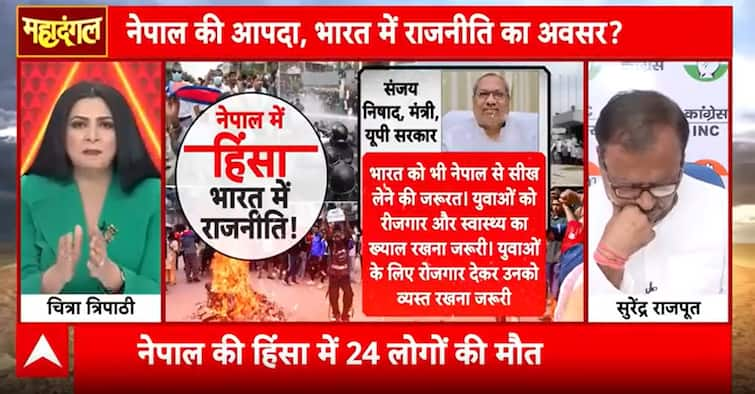A fierce political controversy erupted on live television after Congress spokesperson Surendra Rajput made a series of tweets referencing the violent unrest in Nepal, drawing controversial comparisons with India. During ABP News’s prime-time debate show Mahadangal, anchor Chitra Tripathi confronted Rajput for allegedly celebrating the chaos in Nepal and suggesting similar unrest could unfold in India. Rajput tweeted about the resignation of Nepal’s Prime Minister, referencing him as “China’s friend,” and followed up with remarks about Nepal’s finance minister being assaulted. These posts, seen as provocative and inflammatory, led to a heated on-air clash. Tripathi questioned whether a responsible citizen would wish for the kind of destruction Nepal faced — where the Parliament, Supreme Court, and several ministers’ homes were burned down, and even the wife of a former PM was killed. The debate intensified as Rajput used disrespectful language toward the anchor, drawing widespread criticism. Tripathi stood her ground, asserting that “no one will be allowed to insult India or incite anarchy.” The incident has reignited discussions about the limits of political expression, the role of media in national discourse, and the fine line between dissent and dangerous rhetoric.



